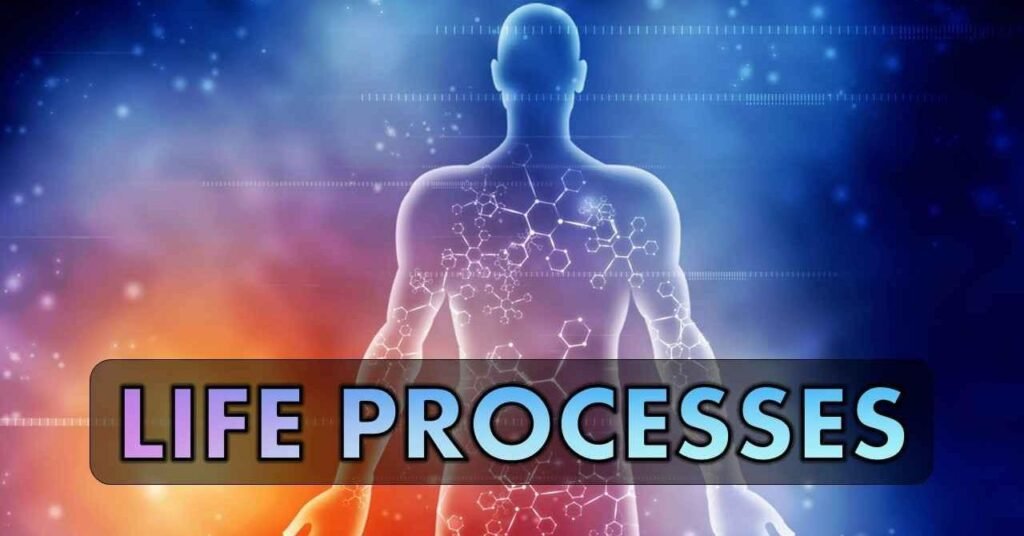Are you curious to know what is life process? You have come to the right place as I am going to tell you everything about life process in a very simple explanation. Without further discussion let’s begin to know what is life process?
Life processes are the fundamental activities carried out by living organisms to maintain their existence. From simple single-celled organisms to complex multicellular beings like humans, life processes are essential for survival. In this article, we delve into the intricacies of life processes, exploring their significance and how they manifest across various organisms.
What Is Life Process?
Life processes refer to the series of actions or functions that living organisms perform to sustain life. These processes ensure the proper functioning of cells, tissues, organs, and systems within an organism.
Importance Of Life Processes:
Life processes are crucial for the survival and growth of organisms. They facilitate the acquisition of energy, removal of waste, growth, reproduction, and response to stimuli, thereby maintaining homeostasis and ensuring overall well-being.
What Is Life Process In Biology?
In biology, life processes encompass a range of activities such as nutrition, respiration, circulation, excretion, growth, reproduction, and response to stimuli. These processes are essential for the survival and perpetuation of life.
Life Processes In Different Organisms:
Life processes vary across different organisms based on their complexity and environmental requirements. From unicellular organisms like bacteria and amoeba to multicellular organisms like plants and animals, the basic life processes remain the same but may exhibit variations in execution.
Seven Main Life Processes:
- Nutrition: The process by which organisms obtain and utilize nutrients for energy and growth.
- Respiration: The process of exchanging gases to release energy from nutrients and remove waste gases.
- Circulation: The transportation of nutrients, gases, and other vital substances throughout the organism’s body.
- Excretion: The removal of metabolic waste products from the body.
- Growth: The increase in size or number of cells, resulting in the overall growth of the organism.
- Reproduction: The process by which organisms produce offspring, ensuring the continuation of the species.
- Response to Stimuli: The ability of organisms to detect and respond to changes in their environment.
Life Processes Class 10 Notes:
In class 10 biology, students learn about the various life processes in detail, including their mechanisms, significance, and relevance to different organisms. These notes provide a comprehensive understanding of topics such as nutrition, respiration, circulation, excretion, growth, reproduction, and response to stimuli.
Life Processes Of Living Things:
Living things exhibit a remarkable array of life processes tailored to their specific needs and environmental conditions. These processes enable organisms to adapt, survive, and thrive in diverse habitats.
Six Main Human Life Processes:
In humans, the six main life processes are nutrition, respiration, circulation, excretion, growth, and reproduction. These processes are essential for maintaining bodily functions, sustaining life, and ensuring overall health and well-being.
Life Processes In Hindi:
In Hindi, life processes are often referred to as “जीवन प्रक्रियाएँ” (jeevan prakriyaen). Understanding these processes in Hindi enables students and enthusiasts to grasp biological concepts effectively in their native language.
Conclusion:
Life processes are the foundation of life, governing the functioning and survival of all living organisms. From the simplest microbes to the most complex beings, these processes orchestrate the intricate dance of existence. By comprehending and appreciating the intricacies of life processes, we gain a deeper insight into the miracle of life itself.
In conclusion, life processes are the essence of life, driving the perpetual cycle of birth, growth, reproduction, and death across the vast tapestry of living organisms. Understanding these processes not only enriches our knowledge of biology but also fosters a profound appreciation for the wonders of the natural world.
By unraveling the mysteries of life processes, we embark on a journey of discovery, exploring the interconnectedness of all living things and our place within the intricate web of life.
FAQ
What Is Life Process Short Answer?
Life processes :- Life. processes are the basic processes in living organisms which are necessary for maintaining their life. The basic life processes are – nutrition, respiration, transportation, and excretion.
What Is The Definition Of All Life Process?
Life processes are those processes which is necessary to maintain life in an organism. If processes like nutrition, circulation, respiration, excretion etc does not take place, then we won’t be able to survive. But there is no harm caused to the body if it does not reproduce.
What Is Life Process For Class 5?
Life processes: These are the 7 processes all living things do – movement, reproduction, sensitivity, nutrition, excretion, respiration and growth.
What Is The Meaning Of Process Life?
That means the effective and efficient delivery of the products and services that we promise to provide stakeholders as documented in our statements of strategic intent (vision, mission, values, objectives, etc.)
I Have Covered All The Following Queries And Topics In The Above Article
What Is Life Processes Class 10 Notes
What Is Life Process In Biology
What Is Life Process Class 10
7 Life Processes Grade 4
What Is Life Process In Hindi
Life Processes Of Living Things
What Are The Six (6) Main Human Life Processes
7 Life Processes Of Living Things
What Is Life Process






